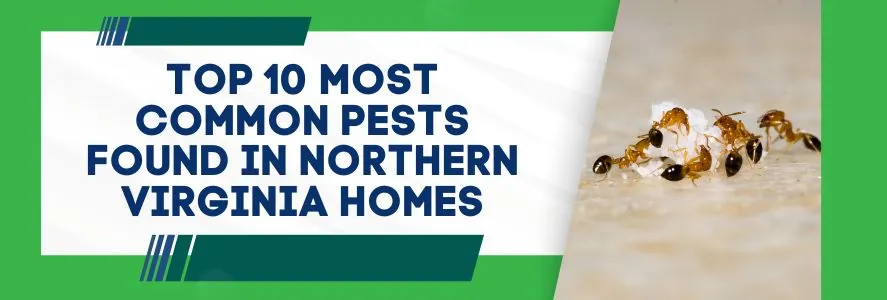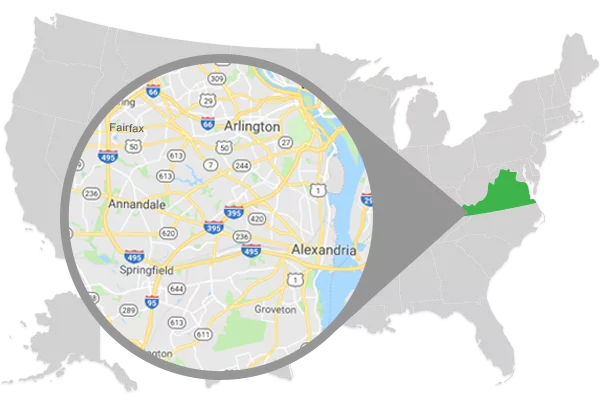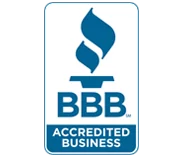Top 10 Most Common Pests Found in Northern Virginia Homes

Northern Virginia’s warm and temperate climate, especially during the summer, creates an environment perfect for pests to thrive. Unfortunately, your homes often provide the food, water, or shelter that pests need to survive, which means that if left unprotected, you might end up with a kitchen full of ants or an attic full of rats. Identifying and treating pest infestations early is crucial to preventing them from becoming a bigger problem and causing more extensive damage. The most common pests we come across in Northern Virginia include:
10. Bed Bugs
Bed bugs are a blood-sucking parasite that are extremely difficult to get rid of without professional intervention. Bed bugs are an increasing problem, and can spread through travel and secondhand items. You can tell if bed bugs are in your home by waking up with itchy bites, blood stains on your sheets, or the presence of bugs inside the seams of your mattress. Getting rid of bed bugs may seem like a daunting task, but Summit Pest Control can get it done!
9. Fleas and Ticks
Fleas and ticks are also common household pests in Northern Virginia. Both are blood-sucking parasites that commonly enter the home on pets, but fleas and ticks have a few key differences. Fleas are jumping insects that infest homes in large numbers, while ticks are arachnids that are usually found solo, or only a few at a time. Fleas are usually an indoor problem, while ticks are an outdoor problem. No matter which one you have, Summit Pest Control can help.
8. House Centipedes
House centipedes are large, thin, extremely fast arthropods with 15 pairs of legs. While house centipedes can bite, they usually don’t, unless handled roughly. House centipedes actually feed on other pests within the home, like bed bugs, silverfish, and cockroaches. While house centipedes are mostly beneficial, many people are scared of them due to their appearance and speed. Summit Pest Control’s general pest control service can take care of house centipedes inside your home.
7. Silverfish
Silverfish are known to hide in humid areas like basements or bathrooms. These insects are actually more destructive than they may seem, as they can feed on fabric and paper goods. Books, wallpaper, glue, fabric, nothing is safe from a hungry silverfish! Summit’s general pest program can take care of these pests, and prevent them from infesting your property again.
6. Wasps and Hornets
During the spring and summer, aggressive stinging insects like wasps and hornets tend to build their nests too close to comfort, often appearing on trees, porches, decks, and even in attic spaces. These insects may swarm or sting if they perceive you as a threat, which is a real problem when they are so close to your home. Summit Pest Control can help, we can safely remove stinging insect nests from your property in Northern Virginia.
5. Termites
Subterranean termites are an incredibly destructive nuisance pest that live underground, but will build mud tubes up into your home. Termites feed on the wood inside your house, and they are so dangerous because they can go undetected for so long. You can have a termite infestation for years and not even know it. That’s why it’s important to have regular termite inspections and a consistent pest control program. Some of the common signs of a termite problem include mud tubes on the foundation, wood that sounds hollow when you tap on it, and the presence of winged reproductives that gather in large swarms.
4. Spiders
Spiders are often more scary than they are outright harmful, but they still most likely aren’t a house guest you want around. Spiders can also indicate an underlying insect problem in the house, as the spiders are naturally going to go wherever the food is. While most spiders are harmless, some, like the Brown Recluse and the Black Widow, have powerful, venomous bites that are extremely painful and often require medical attention. If you are worried about spiders on your property in Northern Virginia, call Summit Pest Control! Our general pest control treatments take care of spiders as well as the insects that attract them.
3. Mice and Rats
Rodent pests like mice and rats are also a common problem for homeowners in Northern Virginia. Mice and rats are very well adapted to living near humans, and will hide out inside less-travelled areas like the basement or attic while their numbers grow. Rodents need to gnaw on everything they can in order to keep the length of their ever-growing teeth down, so a common sign of a rodent problem is teeth marks on baseboards, cabinet doors, and food packaging. Mice and rats can also create fire hazards by chewing through the rubber covering around wires. Rodents can also spread diseases like hantavirus and rat bite fever, so don’t let a rodent problem in your home go unaddressed.
2. Cockroaches
Cockroaches are another common house pest that infests homes in the Northern Virginia area. Roaches are very good at hiding from people, so if you see one, that often means there is a much larger infestation that you aren’t seeing. Roaches thrive underneath appliances and sinks, and in any dark, warm, and damp area of the home. Roaches will crawl across your food preparation surfaces at night, spreading allergens and bacteria. Some of the common types we see in Northern Virginia homes include German roaches and American roaches.
1. Ants
Ants are probably the most common pest that we find inside homes in Northern Virginia. When a scout ant enters under your door and finds a crumb or a spill inside your kitchen, it returns back to the colony, leaving a pheromone trail that brings an entire line of ants into your home. Ants will swarm around trash cans, pet food bowls, kitchen counters, and more. Some of the common types of ants we see include odorous house ants, pavement ants, and carpenter ants.
When To Call A Professional
Calling a professional is recommended as soon as you begin seeing the signs of a pest infestation, as many DIY methods are ineffective. Proactive preventative measures and starting treatment as early as possible is key to stopping the infestation from progressing.












